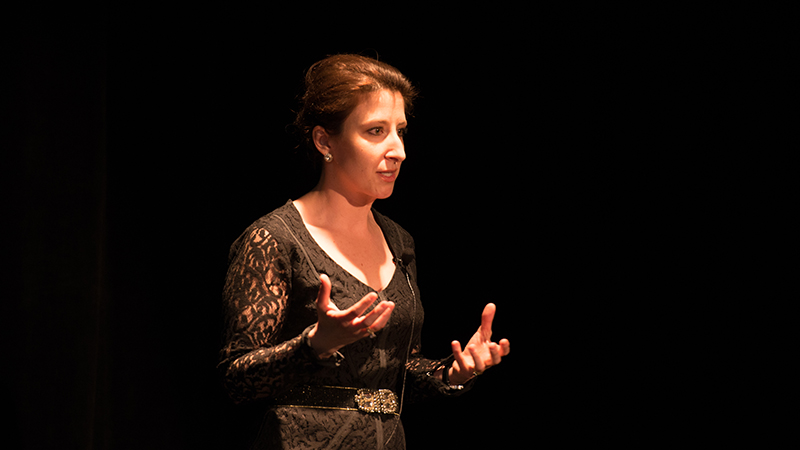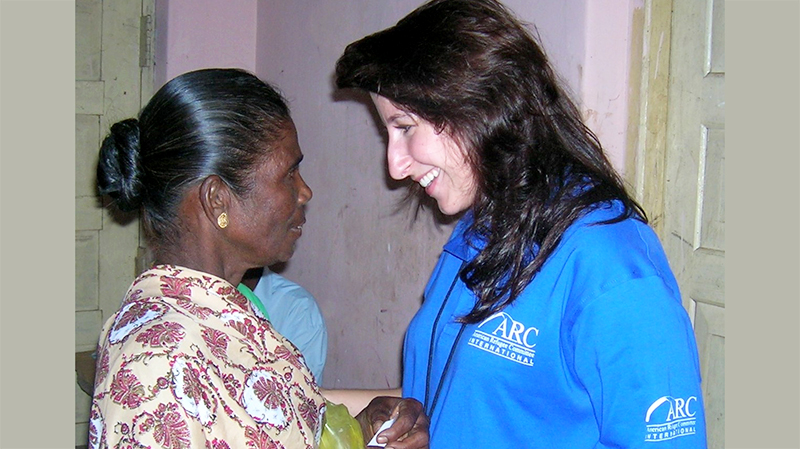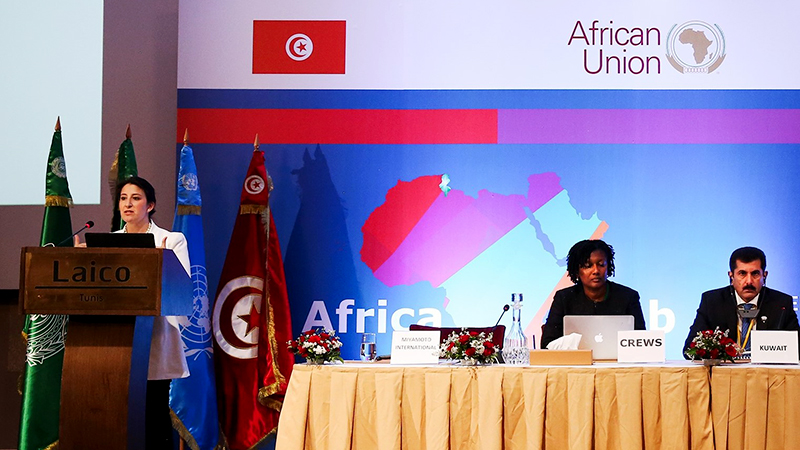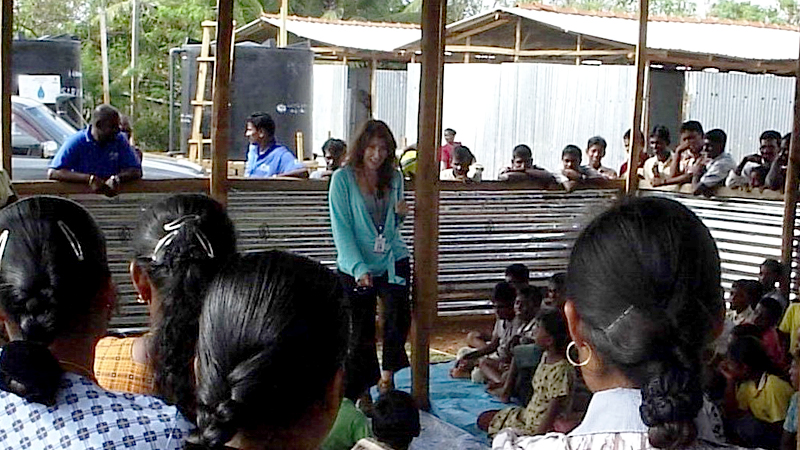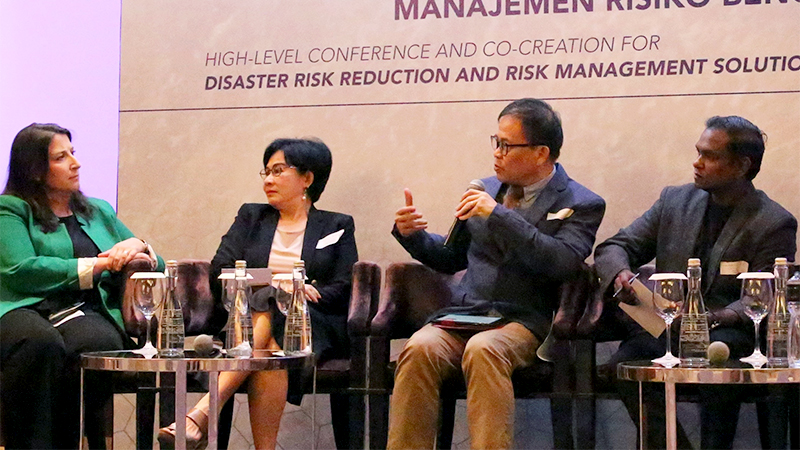Elizabeth Petheo, MA SID’06 is one of 15 alumni to receive a 2020 Florence G. Heller Alumni Award. Often at the forefront of the world's most pressing political and economic challenges, Petheo has a wide range of international development leadership and disaster resiliency program experience worldwide.
Throughout her career, she has worked with U.S. government agencies, foreign country governments, the private sector, multilateral donors and international and local organizations. In addition to critical headquarters roles at the World Bank in Washington, D.C., she successfully led complex multimillion-dollar response operations for leading international organizations in post-earthquake Haiti and a post-Indian Ocean earthquake and tsunami humanitarian assistance program during active civil war in Sri Lanka.
She is currently based in Bangkok, Thailand for Miyamoto International, a structural engineering and disaster risk-reduction firm, where she is the regional representative playing a key leadership role in the development and implementation of projects and partnerships in the Asia-Pacific region. She was also part of the leadership team overseeing the expansion and implementation of Miyamoto’s urban disaster risk management and policy programs and partnerships in Latin America and the Caribbean, as well as Miyamoto’s disaster response and recovery programs following recent Ecuador and Mexico City earthquakes. In addition to an MA in Sustainable International Development from Heller, she also holds an MBA from the MIT Sloan School of Management.
She recently spoke with Heller’s Director of Development and Alumni Relations, Kate Kaplan.
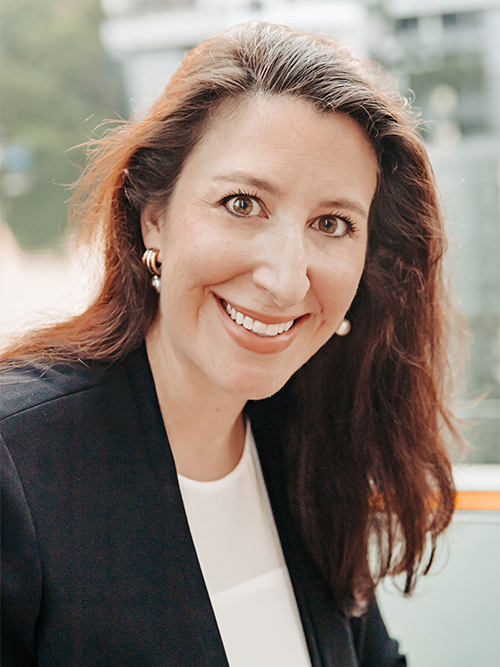
Kate Kaplan: Elizabeth, what brought you to Heller’s Sustainable International Development (SID) program? What have your impressions of Heller been in the years since you graduated?
Elizabeth Petheo: It was a privilege to attend Heller and also to stay connected to the Heller community. The excellent reputation was of course a key factor in choosing the school—in addition to the rigor of the academics, the diverse student body and the emphasis on knowledge to deliver impact and results. I continue to be impressed with the deep commitment to preparing leaders to address complex international issues.
Heller is a very unique place, and the Sustainable International Development program is also very unique. Beyond the world-class reputation, there was such a diverse student body. I believe over 75% of my class was from outside of the United States. When you're looking at understanding global challenges and addressing global problems, it is critical to be surrounded by that diversity of thought and experience to inform the discussion and really advance practical and realistic solutions.
Kaplan: Is there any one memory that sticks out for you, or a handful of memories? A professor or a classmate?
Petheo: So many: Professor Simon, Professor Holcombe—these are people who have continued to be mentors along the way. I am grateful for their support and insights. I also remember very robust cultural nights where people could share their stories, their journeys, as well as give insight into their cultural traditions. Very powerful learning experiences.
The SID model also emphasized small group work and team building. In addition to sharing perspectives and advancing common goals, this kind of model cultivates the skill of deep listening to really understand. This is critical, particularly when you're working on complex global issues and solving hard problems. It underscores the need to be reflective in not just the work, but in how one approaches the work. So, on top of the strong curriculum, these are also elements that make Heller really special.
Kaplan: Is there a lesson learned at Heller that you've carried forward?
Petheo: In international development work, there is an ever-present reconciliation of the ideal and real—whether it is in the realm of policy dialogue or program implementation. Because of the complexity of the work—including the unforeseen setbacks, changing priorities, budget and staffing constraints, external shocks that affect outputs and outcomes—the limitations and challenges are abundant.
One of the things I learned is to not get discouraged. To focus on what is in the span of one’s control. Lead by example. Work hard and focus on the mission. In essence: keep at it. Impact may come in ways and at times you had not anticipated.
Kaplan: Let’s shift to what you're doing now. How do you describe your career to people?
Petheo: In very big picture terms, really since the end of World War II, governments and multilateral agencies invested varying levels of resources—meaning financial, managerial, intellectual and other resources—into this broader mission to deliver and achieve development.
“Development” itself over time has become a multi-layered term to address a series of global goals and advancements in economic, environmental, social and other indicators of well-being: poverty reduction, reduction of inequality and others.
Over time, the way in which we achieve development has been debated and continues to invite a variety of perspectives on both the process and the outcomes. The range of actors engaged in development work has also evolved to include more private sector actors as well as public sector actors.
In my career thus far, whether it has been working at the community level with displaced populations from the Indian Ocean earthquake and tsunami, the civil war in Sri Lanka or large initiatives on the global stage, such as with the World Bank in Washington, D.C., the focus has been how I can lift barriers with and for others—in ways that are inclusive, respectful, place partnership at the center and support locally-led and country-led solutions to relieve suffering.
Vulnerabilities to natural disasters have been a particular area of my work. Although each disaster context is unique, I came to observe some similar vulnerabilities, whether in the built environment and/or the community and policies that surround. Working on disaster and crisis response led me to work much more upstream on various aspects of preparedness and resilience, whether it's community resilience, country-level resilience or operational resilience through management practices, so that people are empowered with information or other resources to better understand and manage the vulnerability and risk. To reduce suffering. To reduce loss of life, as well as economic and social hardship.
Kaplan: When you were growing up, what did you think you would do as an adult?
Petheo: I always felt a deep call to service, and I knew very early on that I wanted a career in the international arena, whether diplomacy or development. I naturally gravitated toward leadership responsibilities. And I was lucky early on to have exposure to the world through travel, to the perspective and insights of senior executives and others I could learn from whether on policy matters or management matters.
Kaplan: What has been your proudest moment in your career so far?
Petheo: Rather than a moment, I can tell you that I find a lot of joy and satisfaction in people finding their own professional success and empowering them to do things they never thought they could do, making teams successful and helping organizations grow and change in a way that is results-driven and purpose-driven.
For example, in a humanitarian response, a disaster happens quickly. There are lots of different elements coming together very fast. So how do you bring together people, financial and other key resources under considerable time pressure and difficult operating conditions in a way that will be able to really address the problem you are trying to solve?
I am passionate about creating professional environments where there's an open exchange of information, where there's a positive culture for learning and growth, clarity on the mission and vision and a focus on “walking the talk.”
I very much see success as a process of improvement and a focus on the essentials. Oftentimes, there is a lot of change management work that has to happen alongside of the program delivery—to build a solid team culture, to reform management systems and processes. As I've been in various leadership roles, I feel proud about leaving the work and the organization better, more robust, more fit for purpose, more effective than when I entered.
Kaplan: What advice would you give to current SID students?
Petheo: You are equipped with a global network with a wide global reach and have the skills and understanding to know how to build a better world. Stay at it. Despite the challenges and the setbacks—stay at it. Think practically. Think about what you can achieve, even if it is incremental.

